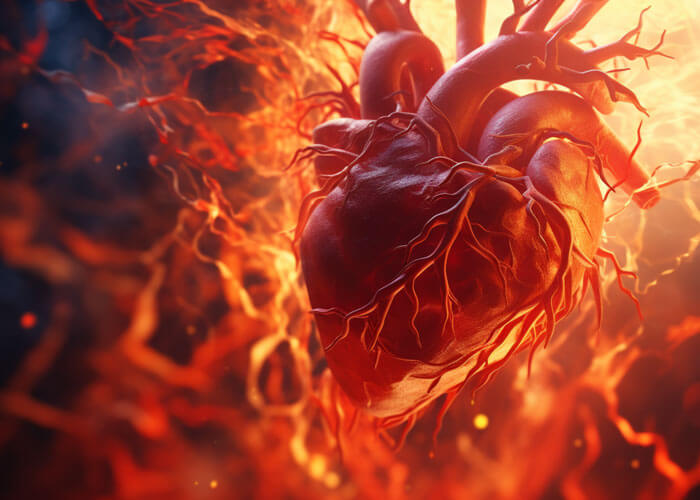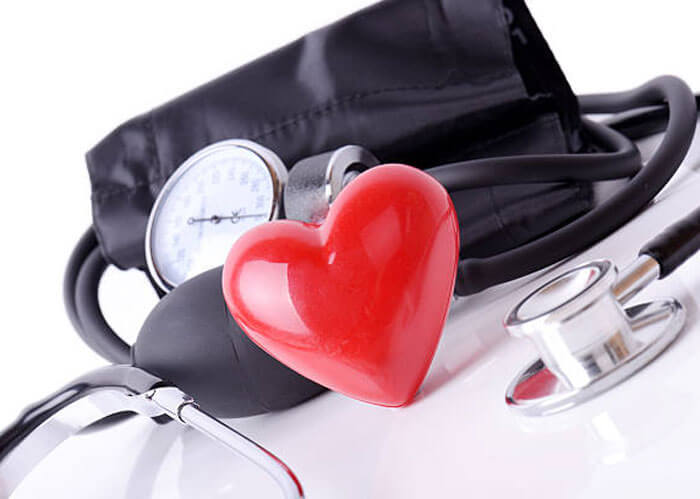
Know the Link between inflammation & heart disease

You are undoubtedly aware that excessive cholesterol and blood pressure are significant risk factors for heart disease. But do you understand inflammation? A recent study indicates that it plays an important function and that aiming to lower it can help avoid heart attacks and strokes.
Inflammation is a normal immunological reaction to sickness or damage. When you have a wound or an infection, inflammation aids in the battle against microorganisms and promotes healing. An inflammatory reaction can also be triggered by the accumulation of cholesterol and other chemicals in your arteries (known as plaques or atherosclerosis).
"Inflammation is beneficial for short-term conditions," Dr. Sudheer adds. Chronically low levels of inflammation, on the other hand, irritate your blood vessels. Inflammation can promote the creation of plaque, release plaque in your arteries, and generate blood clots, which are the major cause of heart attacks and strokes.
A heart attack occurs when a blood clot stops an artery leading to the heart. A stroke occurs when a blood clot stops an artery leading to the brain.
Sudheer Koganti, MBBS, MRCP, emphasised that the exact function of inflammation in heart attacks and strokes is still being studied. The accumulation of fatty, cholesterol-rich plaque in blood vessels appears to be the initiating event in many heart attacks and some types of stroke.
According to Dr. Sudheer, the body interprets this plaque as aberrant and alien, as it does not belong in a healthy blood vessel. As a result, the body attempts to isolate the plaque from the circulating blood. However, given the incorrect combination of conditions, the plaque might rupture, allowing its walled-off contents to come into contact with blood and initiate the formation of a blood clot.
Dr. Sudheer said the majority of heart attacks and certain types of strokes are caused by this mix of plaque and blood clots obstructing blood flow to the heart or brain.
A heart attack is caused by a clogged artery leading to the heart. An ischemic stroke is caused by a blocked artery in or going to the brain.
Dr. Sudheer added in a statement that you may regulate inflammation by avoiding things that stimulate your body's inflammatory response. These similar lifestyle choices cut bad cholesterol, blood pressure, and high blood sugar.
Here are some things you can take to minimise inflammation:
Quit smoking. Smoking causes blood vessel damage and contributes to atherosclerosis. Quitting smoking can cut your risk of heart disease in half.
Keep a healthy weight. Being overweight puts you at risk for a variety of disorders. Carrying extra fat around your belly, on the other hand, is a warning sign of heart disease risk. Visceral fat, a form of fat that collects in the abdomen, secretes a chemical that induces inflammation.
Increase activity: Even 20 minutes of exercise every day might help reduce inflammation. Moderate exercises, such as quick walking, are just as helpful as high-sweat sessions.
Consume a heart-healthy diet. Inflammation is caused by processed and fast meals. In contrast, whole foods are anti-inflammatory. Increase your intake of fruits, vegetables, whole grains, beans, nuts, and fatty fish.
Chronic inflammation doesn't cause symptoms; the only way to detect it is through a blood test, and most individuals aren't examined for inflammation on a regular basis. Making good lifestyle choices is the most effective approach to reducing that risk factor; however, doctors may also prescribe a statin prescription for patients who are at a higher risk of heart disease. Dr. Sudheer can assess your risk level and recommend the best next steps for you.






